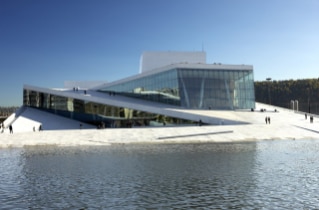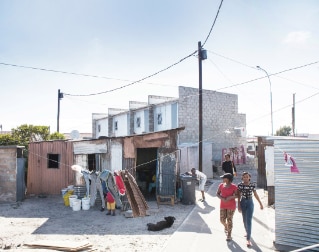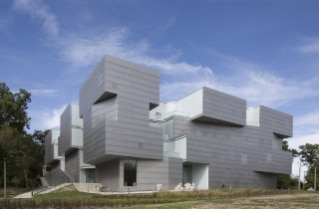The specificity and interest of Urban-Think Tank reside in the way it overlaps the fields of research and design. On the one hand, its members conduct a critical, non-ideological investigation of the multiple shapes that urbanity can assume nowadays. These endeavours are nurtured by the teaching activities carried out by the office’s founders Alfredo Brillembourg (New York, 1961) and Hubert Klumpner (Salzburg, 1965) at the ETH Swiss Federal Institute of Technology in Zurich. On the other, they actively work on one of the most compelling battlefields of contemporary architecture and urbanism: the informal city, and especially South American favelas.
Here, they implement convincing strategies that have proven to involve local communities, engage with the dense, piecemeal nature of the urban fabric, and drastically enhance its potential.
The Metro Cable (2010), for instance, is a suspended cable-car system that radically improves the accessibility of the steep, isolated San Agustín neighbourhood in Caracas without any major destruction. The Vertical Gyms – the first one was completed in the Venezuelan capital’s barrio of Chacao in 2004 – are tool kits rather than architectural designs, replicable prototypes aimed at multiplying the available surface area of public space while being easily assembled with the locals.
A comprehensive publication, and a Golden Lion award for the installation Torre Davidat the 2012 Venice Biennale are all that is left of Urban-Think Tank’s most emblematic experience: a two-year exploration of the squatted Torre David, an iconic, unaccomplished high-rise in the heart of downtown Caracas. For a short while, top-down design and bottom-up adaptation strategies seemed destined to virtuously complement each other in this one-of-a-kind context before conclusive eviction was carried out by the police in 2014.









